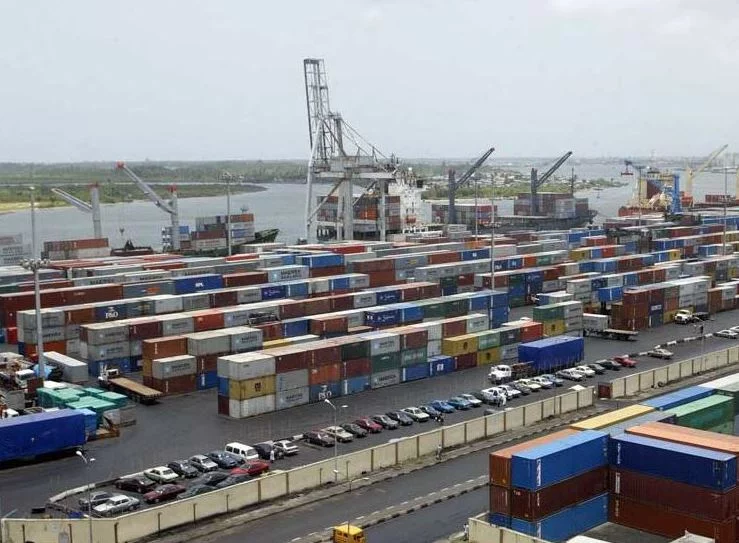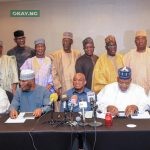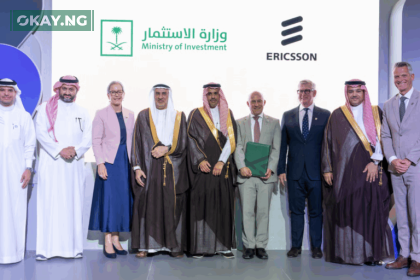Despite handling over 85% of Nigeria’s external trade by volume, the nation’s seaports are operating significantly below their capacity, primarily due to the absence of full 24-hour operations. This limitation results in substantial nightly losses of productive hours, consequently driving up logistics expenses and impeding the nation’s ability to fully capitalize on its maritime advantages. This stark reality was brought to the forefront at the fifth Journaling Port Industry Town Hall Meeting held in Apapa, where stakeholders convened under the theme: “Bridging the gaps to actualise 24-hour port operations.”
Bolaji Sunmola, Chairman of the Nigerian Ports Consultative Council (NPCC), delivered a compelling policy address emphasizing the critical need for a strategic and sustainable pathway towards round-the-clock port activities. He highlighted that while Nigerian ports are central to the nation’s trade, their potential is hampered by a confluence of factors, including decaying infrastructure, bureaucratic bottlenecks, fragmented regulations, and, most significantly, restricted operational hours.
Drawing a sharp contrast with global port powerhouses like Singapore, Rotterdam, and Busan – all operating 24/7 – Sunmola underscored how their continuous activity enables faster vessel turnaround times, optimized cargo flow, and seamless integration with inland logistics. “Nigeria, by contrast, loses productive hours at night, resulting in ship discharge delays and increased costs that are ultimately passed down to the Nigerian consumer,” he asserted.
The challenges hindering nighttime operations are multifaceted. According to Sunmola, inadequate lighting, insufficient surveillance systems, and dilapidated access roads create a risky and inefficient environment after dark. He stressed that establishing safe 24-hour operations necessitates a robust electrical grid, well-lit terminals, rail connectivity, and automated gate access systems. Furthermore, he pointed out that regulatory overlaps often contribute to delays, higher transaction costs, and potential avenues for corruption.
Sunmola proposed a forward-thinking approach to power supply, a crucial element for sustained 24-hour operations. Instead of simply replicating energy-intensive, fossil fuel-based models, he suggested that Nigeria could “leapfrog into renewables and hybrid microgrids, tailored to its climate and capacity.” He cited the successful implementation of Solar Photovoltaic (PV) systems in ports like Jurong (Singapore) and Los Angeles, as well as hybrid microgrids combining solar, wind, and biofuel with battery storage, as viable solutions for ensuring consistent and cost-effective power. “Studies have shown that implementing solar hybrid systems in port facilities can lead to significant fuel cost savings and reduced downtime over time. For Nigeria, this translates into both financial savings and enhanced reliability,” he explained.
The President of the National Council of Managing Directors of Licensed Customs Agents (NCMDLCA), Lucky Amiwero, echoed these concerns, lamenting that the current limited operational hours are “not in line with global best practice.” He firmly stated that Nigeria must achieve 24-hour port operations to align with international standards, emphasizing that delays and the absence of nighttime activities escalate the cost of doing business, diminish efficiency, and prolong turnaround times. Amiwero also advocated for a modernized cargo inspection regime, prioritizing state-of-the-art scanners equipped with artificial intelligence capable of processing over 200 containers per hour. He further stressed the need for a “cultural reorientation” among all port stakeholders to ensure the sustainability of infrastructure and policy initiatives aimed at 24/7 operations.
Dr. Eugene Nweke, Head of Research at Sea Empowerment and Research Centre, called for a comprehensive review of the industry’s policy framework, particularly concerning 24/7 operations and other critical areas. He emphasized the urgent need to address infrastructural deficiencies, acknowledging that “opportunities still exist to make realistic progress.” While expressing frustration with current inefficiencies, Dr. Nweke urged a collective commitment to improvement, including monetary evaluation and systemic accountability. He also underscored the importance of enhanced collaboration and consistent engagement among stakeholders to drive meaningful reforms. In a direct challenge to industry players, he advocated for a shift “from the culture of blame to a more collaborative, solution-driven approach.”
Earlier in the meeting, the Convener, Ismail Aniemu, highlighted persistent challenges in trade facilitation and the ease of doing business, particularly the need for seamless ground logistics. He pointed out that despite some port activities technically commencing at the “fairway boy,” many crucial operations remain functionally suspended, hindering the overall efficiency of Nigeria’s maritime sector.
The resounding message from the Town Hall Meeting was clear: the transition to full 24-hour port operations is not merely an operational upgrade but a fundamental necessity for Nigeria to unlock the full potential of its seaports, reduce crippling logistics costs, and compete effectively in the global maritime landscape. As stakeholders emphasized, a collaborative, strategic, and sustainably powered approach is paramount to bridging the existing gaps and ushering in an era of enhanced efficiency and economic prosperity for Nigeria.













